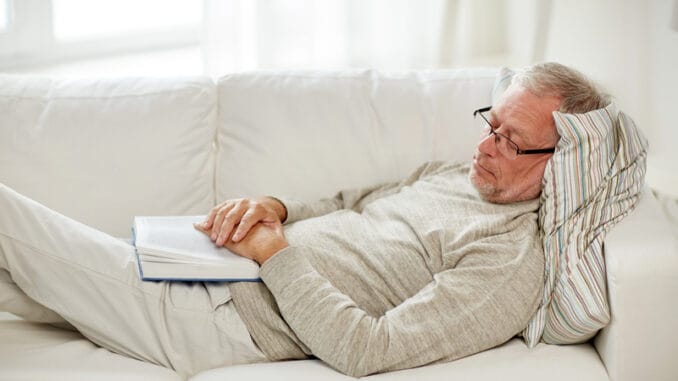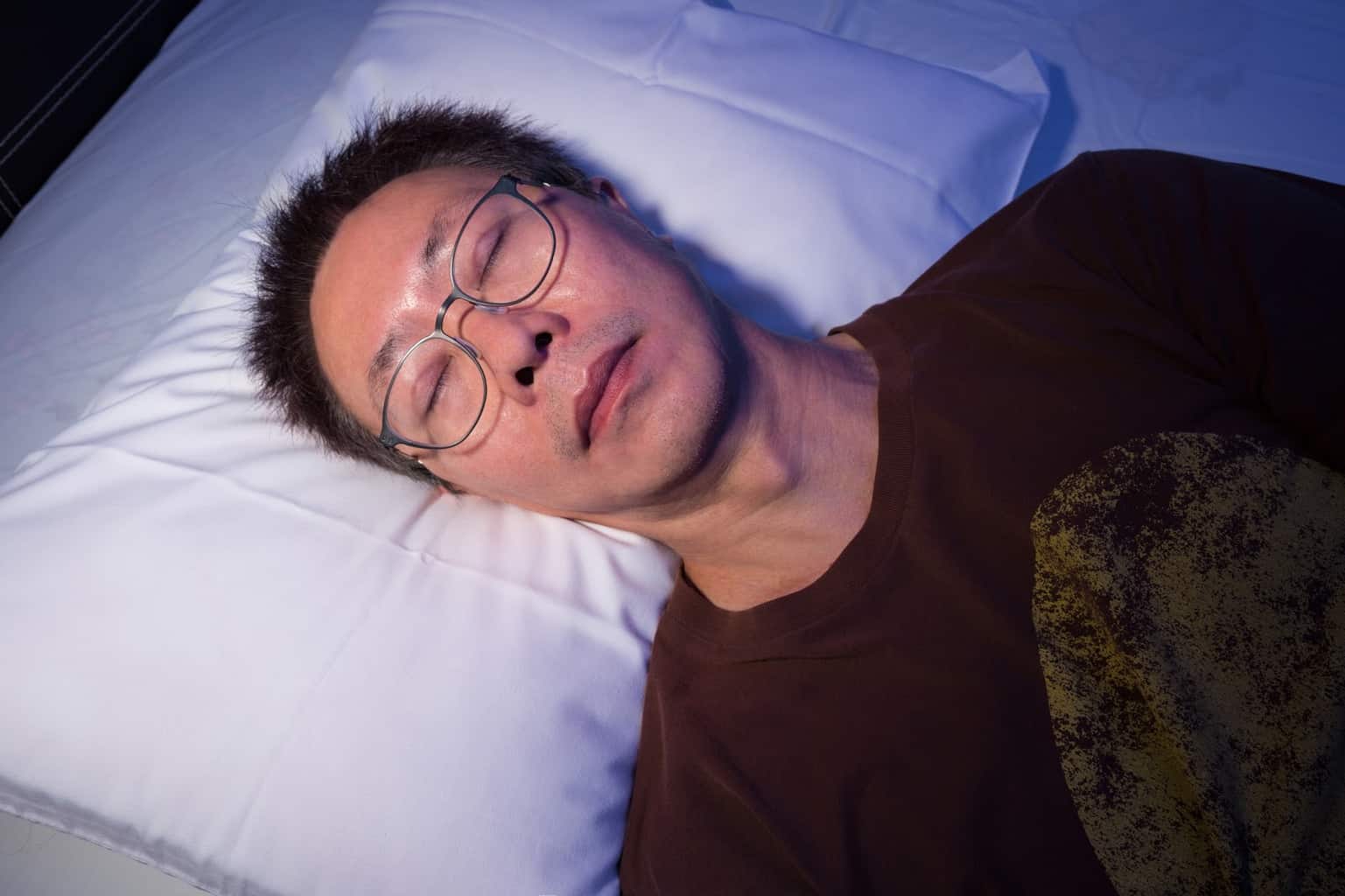
These special glasses fight off insomnia and other chronic sleep problems better than anything else

—-Important Message From Our Sponsor—-
Enjoy twice the stamina in bed with this new herbal breakthrough for men
I’ve got big news…my friend is finally finished in the lab with his new stamina breakthrough for men…
And now it’s available to men everywhere, first come first serve, while supplies last.
Trust me, this little herbal supplement I’m holding in my hand will allow you to amaze any woman in bed.
She’s going to look up at you, shocked beyond belief that you are pleasuring her so much and for so long.
And she’s going to love every second of it!
And YOU can enjoy limitless stamina, more confidence, and more pleasure…
Just as soon as you pop this little supplement in your mouth…
———-
Men are wearing these glasses to sleep better than they have in years
The Center for Disease Control reports that about one-third of U.S. adults do not get adequate sleep.
Inadequate sleep is associated with diabetes, heart disease, obesity, cancer, arthritis, stroke, heart disease, heart attack and depression.

According to Harvard Medical School, those with psychiatric conditions are about five times more likely to suffer from chronic sleep problems.
Many of these psychiatric problems are caused by a lack of sleep and improve when proper sleep is restored.

We need sleep to be mentally and physically healthy.
A new study shows a simple hack that may help a lot of people fight insomnia.

The study took place at Columbia University in New York and was published in the journal Sleep Health.
14 insomniacs (men and women) were recruited into the study.
All of the individuals who took part in the study were assigned to either amber colored glasses or clear glasses. These glasses were worn for two hours before bed.
This was a crossover study, so everyone had an opportunity to use both the amber coloured glasses and the clear glasses.
The study ran for seven days and was then repeated by switching glasses.
Those who had clear glasses initially got amber glasses in the second run and vice versa. There were four weeks between each phase of the trial.
The outcomes were measured using a standardised questionnaire known as the Pittsburgh insomniac rating scale.
Participants were also fitted with a wrist device which measured movement patterns along with sleep and wake cycles during the night.
The study found improvements on the Pittsburgh insomniac rating scale (PIRS) with the amber coloured lenses.
“Insomnia rating scale scores were improved in amber vs. clear lenses condition.”
People reported better quality-of-life and less distress when using the experimental lenses.
“Quality of life and reported levels of distress were improved with amber lenses.”
People reported getting more sleep and waking later when they used the amber lenses.
“Reported wake-time was significantly delayed, and mean subjective total sleep time were significantly higher in amber vs. clear lenses.”
People reported sleeping more soundly and felt that sleep quality was higher when using amber glasses before bed.
“Quality and soundness of sleep were significantly higher in amber vs. clear lenses condition.”
When the scientists examined the records from the wristwatch device designed to track sleep and movement they found that those using amber glasses got more sleep.
“Actigraphic measures of total sleep time only were significantly higher in amber vs. clear lenses.”
The study found a significant improvement in insomnia symptoms by using amber glasses for two hours before bed.
“Wearing amber vs. clear lenses for 2-h preceding bedtime for 1 week improved sleep in individuals with insomnia symptoms.”
The reason that these glasses protect people’s ability to sleep is that they block blue light.
Blue light hits the eye and causes stimulation or wakefulness.
Blue light also suppresses melatonin.
Melatonin is a natural signal released by the body at certain times of the day to initiate sleep.
Modern household lighting and many electronic devices produce a lot of light in the blue spectrum. These lights and screens suppress melatonin and so cause insomnia.
The amber lense is used in this experiment blocks the blue wavelengths that suppress melatonin.
By blocking blue light these glasses allow for a natural onset of sleep.
“Exposure to blue-wavelength light in particular from these devices may affect sleep by suppressing melatonin and causing neurophysiologic arousal.”
Blue light late in the day may be a significant cause of insomnia and so may be associated with many of the chronic health problems caused by inadequate sleep.
Minimising blue light through glasses or software applications that lower the amount of blue light emitted by a screen may have significant beneficial health effects for those suffering from insomnia.
Incandescent bulbs — especially those with a lower kelvin (K) rating — have a warmer light spectrum with more red/amber light and less blue light.
These lights may be a better solution for lighting late in the day.
—-Important Message From Our Sponsor—-
Men with ringing ears — sleeping this way causes tinnitus
Specialists at the California Ear Institute left in complete awe after they discover that…
…sleeping this many hours per night makes men 3 times more likely to develop tinnitus…
(Hint: it’s NOT about getting too little sleep…)
They could not believe that this seemingly harmless habit causes IRREVERSIBLE damage to the brain…
Don’t go to sleep until you watch this alarming video…
———-

Sleep and Mental Health - Harvard Medical School
https://www.health.harvard.edu/newsletter_article/Sleep-and-mental-health
Sleep and Sleep Disorders - CDC
https://www.cdc.gov/sleep/index.html
Blocking nocturnal blue light for insomnia: A randomized controlled trial
https://www.sciencedirect.com/science/article/pii/S0022395617308592
